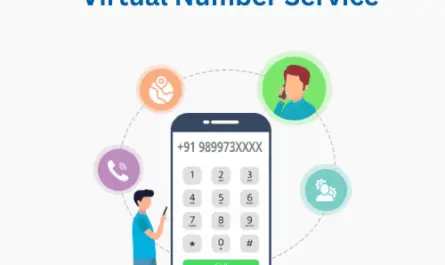Micro, Small, and Medium Enterprises (MSMEs) form the backbone of many economies, contributing significantly to employment generation, industrial output, and GDP growth. In India, the Udyam Registration portal was introduced to streamline the registration process for MSMEs, aiming to provide them with various benefits and opportunities. However, despite its intended advantages, MSMEs often encounter challenges in obtaining Udyam Registration, hindering their access to essential resources and support. Understanding these challenges and exploring effective solutions is crucial for fostering the growth and sustainability of MSMEs in India.
Challenges Faced by MSMEs in Obtaining Udyam Registration:
Lack of Awareness:
One of the primary obstacles faced by MSMEs is the lack of awareness about the Udyam Registration process. Many small businesses, particularly in rural areas or those operating in informal sectors, may not be familiar with the registration requirements or the benefits associated with it. This lack of awareness leads to a significant portion of eligible MSMEs remaining unregistered, depriving them of government schemes and support.
Complex Registration Process:
The Udyam Registration process, although designed to be simpler than its predecessor, still presents complexities for many MSMEs. The documentation requirements, online application procedures, and classification criteria can be daunting for entrepreneurs, especially those with limited resources and technical expertise. Navigating through the registration process often requires external assistance, which may not be readily available to all MSMEs.
Technical Challenges:
Inadequate technological infrastructure and digital literacy pose significant challenges for MSMEs attempting to register on the Udyam portal. Many small businesses lack access to reliable internet connectivity or may struggle with using online platforms effectively. As a result, they face difficulties in completing the registration process online, leading to delays and frustration.
Classification Issues:
Determining the appropriate classification and eligibility criteria under the Udyam Registration system can be confusing for MSMEs. The classification is based on investment in plant and machinery or equipment, making it challenging for businesses with diverse operations or fluctuating asset values to ascertain their category accurately. This ambiguity often results in misclassification, leading to either exclusion from benefits or incorrect categorization.
Documentation and Verification:
The documentation requirements for Udyam Registration necessitate the submission of various certificates, licenses, and financial statements. MSMEs, especially those in the informal sector, may struggle to gather and organize these documents, leading to delays in the registration process. Moreover, the verification procedures employed by authorities may be time-consuming and cumbersome, further adding to the challenges faced by MSMEs.
Solutions and Support for MSMEs:
Awareness Campaigns:
Government agencies, industry associations, and non-profit organizations can collaborate to conduct awareness campaigns about Udyam Registration. These campaigns should target both urban and rural areas, utilizing traditional and digital channels to reach a diverse audience. Providing information about the benefits of registration and simplifying the process through user-friendly guides can encourage more MSMEs to register.
Simplification of Procedures:
Efforts should be made to simplify the Udyam Registration process by reducing documentation requirements and streamlining the online application interface. The government can introduce user-friendly portals with interactive features and clear instructions to guide MSMEs through each step of the registration process. Additionally, providing multilingual support and assistance services can make the process more accessible to non-English-speaking entrepreneurs.
Capacity Building:
Investing in capacity-building initiatives aimed at enhancing digital literacy and technological capabilities among MSMEs is essential. Training programs, workshops, and online tutorials can empower entrepreneurs with the skills needed to navigate the Udyam Registration portal effectively. Collaborating with educational institutions and industry experts can ensure the delivery of relevant and practical training tailored to the needs of MSMEs.
Simplified Classification:
The classification criteria for MSMEs should be reviewed and simplified to address the challenges of misclassification. Introducing clear guidelines and thresholds based on turnover or revenue in addition to investment in assets can provide more clarity to MSMEs regarding their eligibility. Moreover, establishing mechanisms for reclassification and appeals can address instances of erroneous classification and ensure fairness.
Note: Apply for Print Udyam Registration through our portal.
Conclusion:
Udyam Registration holds immense potential to empower MSMEs by granting them access to various government schemes, financial assistance, and market opportunities. However, the challenges faced by MSMEs in obtaining registration necessitate concerted efforts from government agencies, industry stakeholders, and support organizations. By addressing issues such as awareness gaps, procedural complexities, and technological barriers, India can create a more conducive environment for MSME growth and contribute to the overall economic development of the nation. Encouraging MSMEs to register and providing them with the necessary support and resources is essential for unlocking their full potential as engines of innovation, employment, and inclusive growth.







